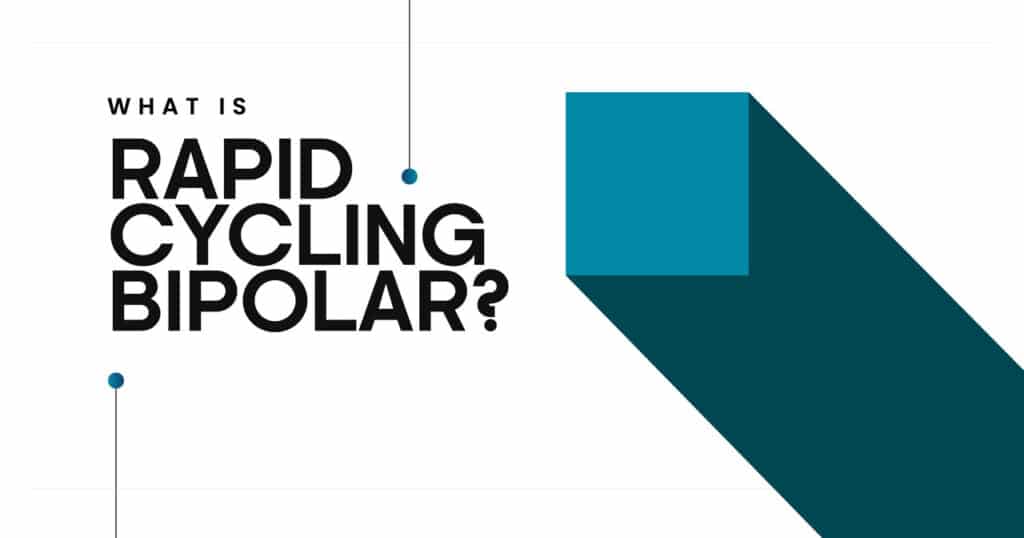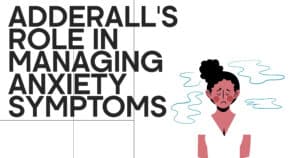Bipolar disorder is a mental health condition recognized by extreme mood swings, including episodes of mania and depression. When these mood episodes occur more frequently, a person may be experiencing rapid cycling bipolar disorder. This blog post delves into what rapid cycling bipolar is, its symptoms, causes, risk factors, and treatment options, providing a comprehensive overview for those seeking to understand this condition better.
What is Rapid Cycling Bipolar Disorder?
Rapid cycling is a specifier for bipolar disorder. It is diagnosed when an individual experiences four or more mood episodes within twelve months. These episodes can be manic, hypomanic, or depressive, and they need to be restricted by either a period of remission or a switch to the opposite mood state.
Symptoms of Rapid Cycling Bipolar Disorder
Symptoms of rapid cycling bipolar disorder are generally similar to those of bipolar disorder but occur more frequently. These include:
Manic Symptoms:
- Elevated or irritable mood
- Inflated self-esteem or grandiosity
- Decreased need for sleep
- Increased talkativeness
- Racing thoughts
- Distractibility
- Increased goal-directed activity
- Risky behavior
Depressive Symptoms:
- Persistent sadness or emptiness
- Loss of interest in activities
- Significant weight loss or gain
- Insomnia or hypersomnia
- Fatigue or loss of energy
- Feelings of worthlessness or guilt
- Difficulty concentrating
- Thoughts of death or suicide
Causes of Rapid Cycling
The exact cause of rapid cycling in bipolar disorder remains unclear, but several factors may contribute:
- Antidepressants: Long-term use of antidepressants has been linked to rapid cycling.
- Thyroid Dysfunction: Hypothyroidism (underactive thyroid) is more common in people with rapid-cycling bipolar disorder.
- Circadian Rhythm Disruptions: Irregular sleep patterns and biological clock disturbances can trigger mood episodes.
- Genetics and Biology: Family history and biological factors may play a role.
Risk Factors
Certain risk factors can increase the likelihood of developing rapid cycling bipolar disorder:
- Gender: Women are more likely to experience rapid cycling than men, possibly due to hormonal fluctuations.
- Age of Onset: Those who develop bipolar symptoms during their teenage years are at higher risk.
- Type of Bipolar Disorder: Bipolar II disorder patients may have a higher propensity for rapid cycling.
- Medication: Long-term use of certain drugs, particularly antidepressants, can contribute to rapid cycling.
Impact on Quality of Life
Rapid cycling bipolar disorder can severely impact an individual’s quality of life:
- Functioning: Frequent mood swings can impair daily functioning and make it challenging to maintain a regular schedule.
- Relationships: The unpredictability of mood changes can strain personal and professional relationships.
- Mental Health: Increased risk of substance abuse, self-harm, and suicidal thoughts are common among individuals with rapid cycling.
Treatment Options
Managing rapid cycling bipolar disorder often requires a combination of medication and therapy:
Medications:
- Mood Stabilizers: Lithium and anticonvulsants like valproate and lamotrigine are commonly used to stabilize mood.
- Antipsychotics: Drugs like quetiapine (Seroquel) and olanzapine (Zyprexa) can help manage symptoms of mania and depression.
- Antidepressants: Typically, antidepressants are used cautiously and often discontinued if they trigger rapid cycling.
Therapy:
- Psychotherapy: Cognitive-behavioral therapy (CBT) and other forms of talk therapy provide support and strategies for managing symptoms.
- Lifestyle Modifications: Regular sleep patterns, a healthy diet, and exercise can help regulate mood.
- Support Groups: Connecting with people who have bipolar disorder can provide emotional support and practical advice.
Conclusion
Rapid cycling bipolar disorder is a challenging and often debilitating condition, but with proper diagnosis and treatment, individuals can manage their symptoms and improve their overall quality of life. If you or someone you know is struggling with bipolar disorder, it’s crucial to seek professional help and explore the various treatment options available.
By recognizing the symptoms, causes, and treatments of rapid cycling bipolar disorder, you can better support yourself or a loved one in navigating this complex condition.







